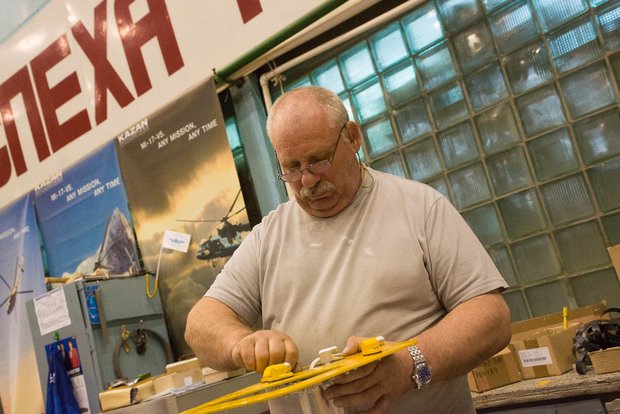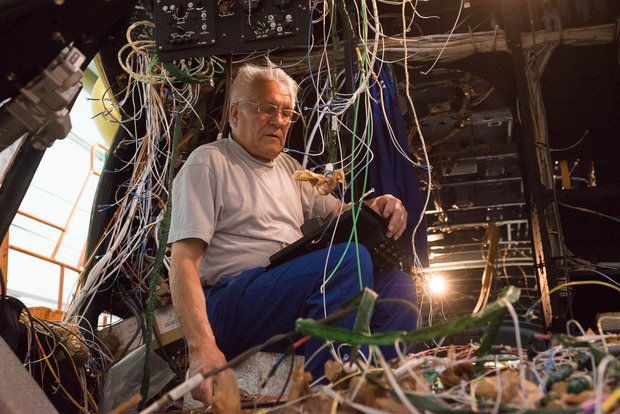''Saying this pension reform cuts people off their pension is a lie''
Vladimir Nazarov whom the media called the author of the ‘cannibalistic’ reform about why there is no other alternative
The majority of residents of Russia expectedly didn't like the news about raising the retirement age and caused a wave of populism. Leftist and rightist politicians, trade unions and even heads of some regions took up arms against the reform. People went on strike in different parts of the country demanding to leave all as it is. Vladimir Nazarov, economist and director of the Financial Research Institute Federal State Budgetary Institution under the Ministry of Finance of Russia, is one of those who are on the other side in this discussion. For this, the mass media made him responsible for the unpopular decision of the government. In an interview to Realnoe Vremya, Nazarov explains there is no alternative to the retirement age rise, and to lay copyright claim to this is like crediting with inventing the wheel.
''The world hasn't found any other way but raise the age''
I won't ask your attitude to the retirement age rise because I know you've been supporting this idea for long. Could you explain briefly why it needs to be done?
Because there is no other way to increase pensions to today's pensioners with an ageing population. Now one working person and bit more from whose salary insurance premiums are completely paid accounts for one pensioner only. And the situation will constantly worsen in the next 15 years: a small generation of the 90s will enter the labour market, while a big generation of post-war baby boomers will leave it. The quantity of labour resources will reduce by almost 1% every year.
Such a system can't exist. We will have to either constantly raise insurance premiums – take by 1% of salary every year – as a result, we will have given a half of salary for pensions in 30 years already, it's very cumbersome for both people and businesses, or accept that pensions will be hardly indexed by inflation or even lower. And the pension and salary ratio will constantly worsen. At a moment, it will become simply intolerable for society: the difference between a pensioner and working person's incomes will be intolerably big. So the world hasn't found any other way but to raise the age: all the countries are covering this road, and Russia fall behind of this movement.
There is an opinion raising the age will give a temporary effect, and considering growing lifespan, it will be necessary to repeat everything in several years. Is it true?
The parameters the government offered guarantee we won't need to raise this issue for about 30 years. The retirement age rise stabilises the ratio of pensioners and working people for 16 years. And then, by the middle 2030s, a demographic bonus from increased natality awaits us, including due to the action of the maternity capital. The children who born to a big generation of the 80s will enter the labour market. This bonus is to be enough for another 15 years to maintain a stable ratio of donors and recipients of the pension system. So the retirement age rise is not an instantaneous measure, it's a guarantee of stable growth pensions for at least three decades.

Now one working person and a bit more from whose salary insurance premiums are completely paid accounts for one pensioner only. And the situation will constantly worsen in the next 15 years
Many people are afraid they won't be able to find a job easily due to age discrimination. Isn't there any risk people will lose their pension and job?
Such a risk affects the minority of people. The majority of our people (or, more precisely, 65%) already continue working after the retirement age now and work for some 5 years on average. Part of people (15%) don't work before retiring; and about 20%, or 300,000 people, are those who stopped working after reaching the retirement age. Moreover, the number of workforce reduced by 500,000 people last year only. This number will increase to 700,000 people every year further. Consequently, the retirement age rise covers at least 50% of the deficit in labour resources.
This is why no pressure on the labour market is expected. I will repeat once again that a very big generation of post-war baby boomers is retiring now, while the labour market is a very small generation of the nineties. There is nobody to support retiring old people, there is no other workforce. And if there is some economic growth, a workforce will be needed anyway. Unemployment already is considerably reducing now: it's less than 5% in Russia. And if the workforce will reduce by 1% every year, the higher retirement age won't cause any aggravation of the unemployment problem.
''If we increase taxes, it's better to start with VAT''
By the way, you said 5-6 years ago it was better to accompany the retirement age rise with other measures. And as one of the options, you considered a VAT hike because it's not so sensitive for the economy like higher insurance premiums. Now even the Ministry of Economic Development predicts a decline in the economic activity when this scenario is applied. Do you still think the rise in VAT is correct?
It depends… A rise in VAT is the best of the worst solutions. In other words, if we increase taxes, it's better to start with VAT because it's more neutral for the economy, it also affects importers: other countries, their producers, not ours, pay part of this tax. Nevertheless, a tax hike is harmful anyway, and the rise in VAT scotches economic growth. Here I agree with the Ministry of Economic Development.
Personally, I liked the idea the Ministry of Finance last year more – it's a tax manoeuvre when we raise VAT but simultaneously reduce insurance premiums. Such an option would make salaries declared, as insurance premiums reduce. The disproportion between the shadow sector and those who work illegally would decrease because the shadow sector has to pay VAT anyway – it buys goods and services anyway, and this price would already include the tax. VAT includes the whole economy – both the shadow sector and importers – everybody. While only entrepreneurs who pay declared salaries pay insurance premiums – they are the most honest and good guys.
In my opinion, there was a sense in substituting the rise in VAT for a considerable reduction of insurance premiums. Same Germans made such a reform – they reduced income tax and insurance premiums in exchange for a rise in VAT. And they got quite good results. While a unilateral rise in VAT is better than something else. But it's clear it won't accelerate economic growth. Quite the opposite.
''They saw a person in glasses and decided he was guilty of everything''
The Higher School of Economics National Research University calculated during the period of transition the probability for men to see retirement is 82-96% and 93-99% for women. Do you agree with this assessment?
Yes, I agree with the numbers. We're talking about the people who are at a pre-retirement age. The probability they will have a raised retirement age is very high. We have a problem with men's average lifespan. But the problem isn't that our men massively die at a retirement age and nobody sees a pension but that many of them die too early – at 30, 40, 50, far from the retirement age. As a result, over 60% of men reach the retirement age and get a pension for 14 years on average. Meanwhile, men's' average lifespan isn't high.
For the balance of the pension system, it's not an economy but just harm because it loses its major donors early – men. It's the strategic challenge to the occupational health system: to make more than 90% of men reach 65 years. And for 50-year-old men and 40-45-year-old women, the chances of reaching the new retirement age of 65 and 63 years are so, as the Higher School of Economics calculated, they are quite acceptable. Saying this pension reform cuts people off their pension is a lie.

Over 60% of men reach the retirement age and get a pension for 14 years on average. Meanwhile, men's' average lifespan isn't high
Indeed, you have been very actively supporting the retirement age rise for a very and very long time. And several media of quite a doubtful quality have recently run a real campaign against you. They write you're 'the author of the pension reform'. Can you say anything about this?
On the one hand, it flatters when you are so praised. On the other hand, it's unpleasant when you read not very flattering comments. I would also refuse these laurels and the slops behind these laurels. The government is the author of the reform, it prepared the bill and introduced it to the Duma. That's it.
Speaking about the idea of raising the retirement age and not the reform, it's as silly to lay copyright claim as to lay copyright claim to the invention of the wheel or bicycle. This idea appeared a long time ago: developed countries understood in the 70s they couldn't do but raise the age. This is why they have been holding such discussions for 40 years already. I'm far from being the first in Russia. I've been talking about it for 10 years, but I have colleagues from RANEPA, Higher School of Economics, the Economic Expert Group who have been talking about it for a longer time. Yes, I'm a member of the government expert council. But I'm not the only person to speak about it.
All this campaign probably coincides with my statements in the media – they saw a person in glasses and decided he was guilty of everything. I have to disappoint: my role here is not decisive. I've just always said it's inevitable. Winter comes not because I predicted it.